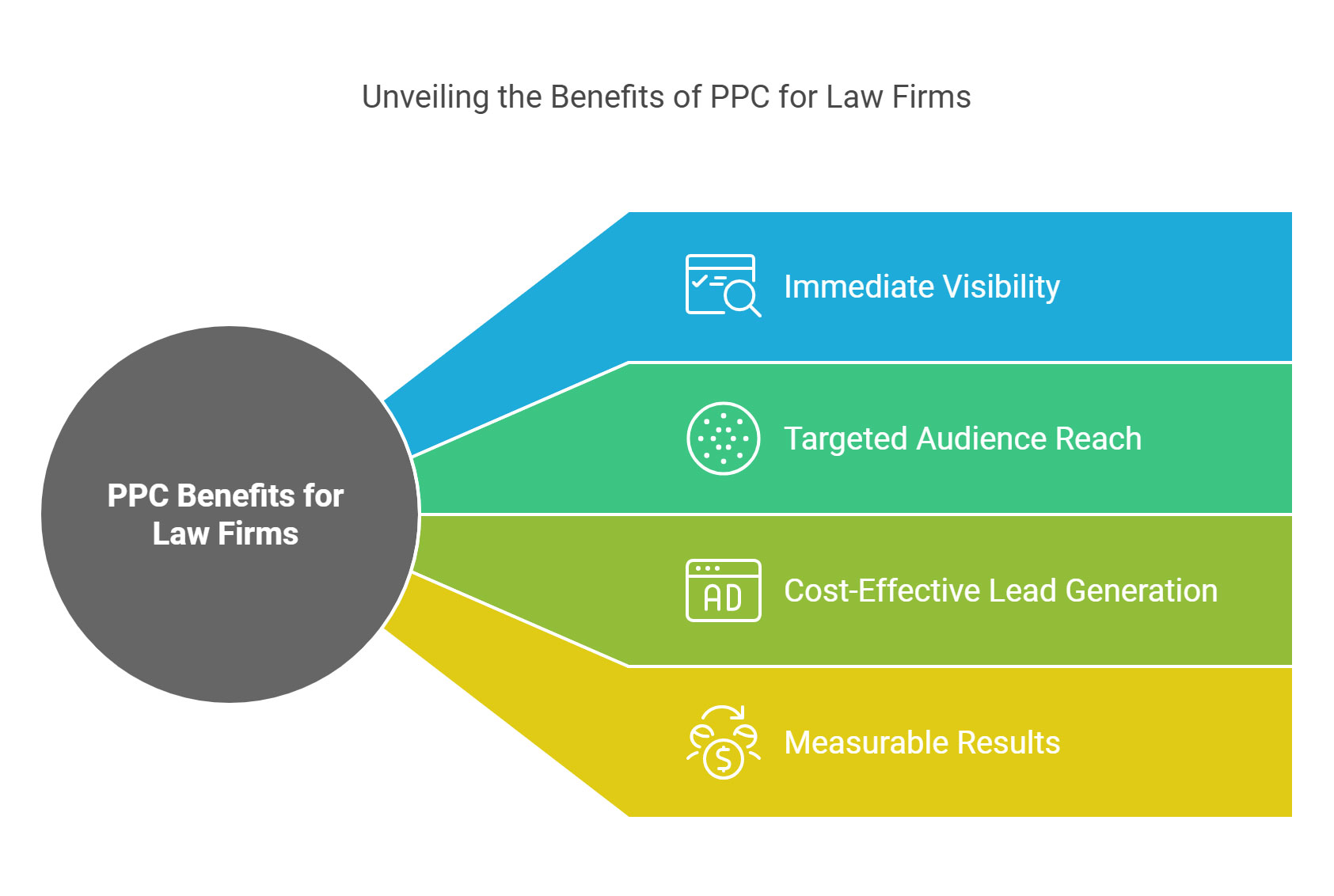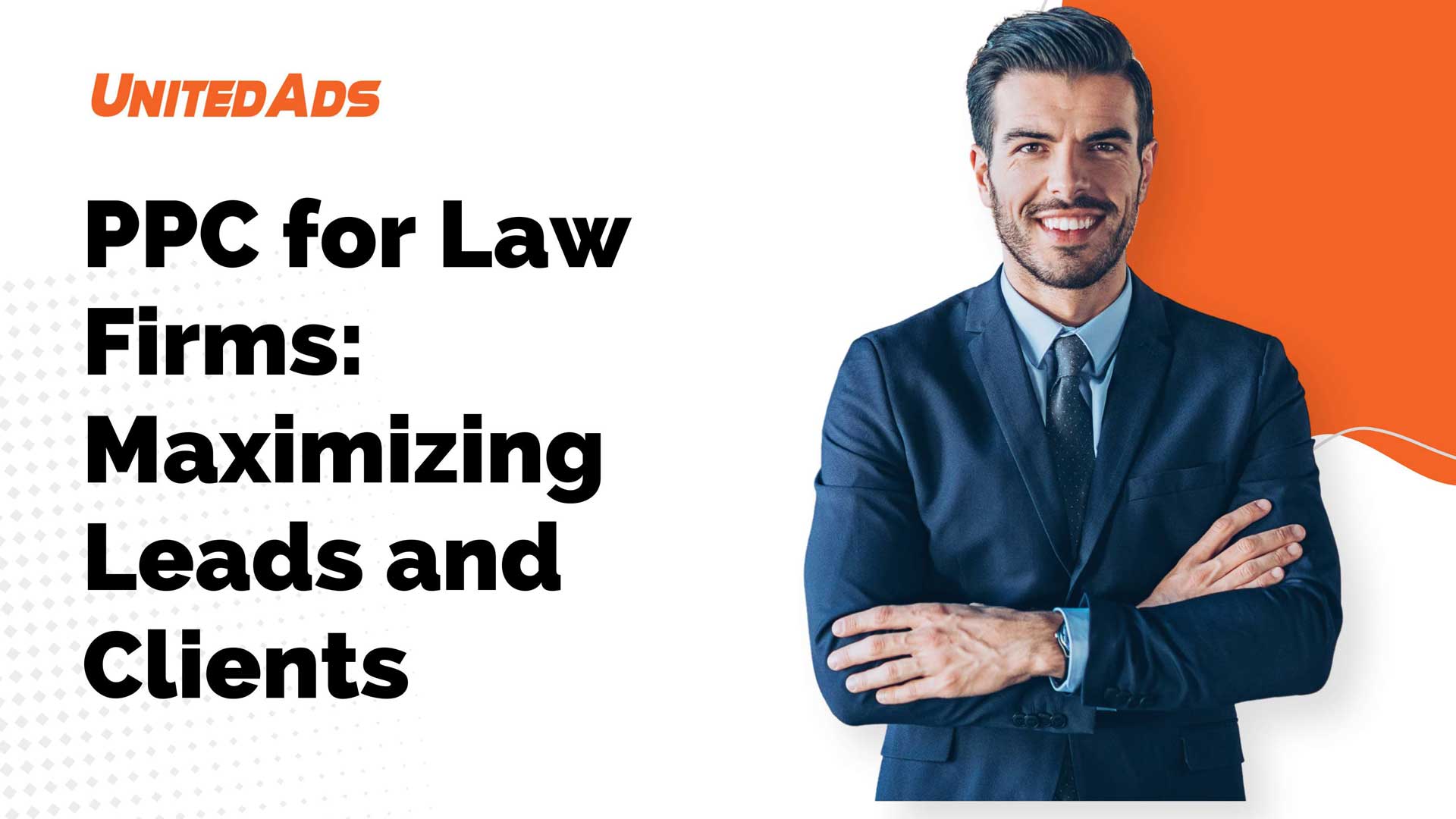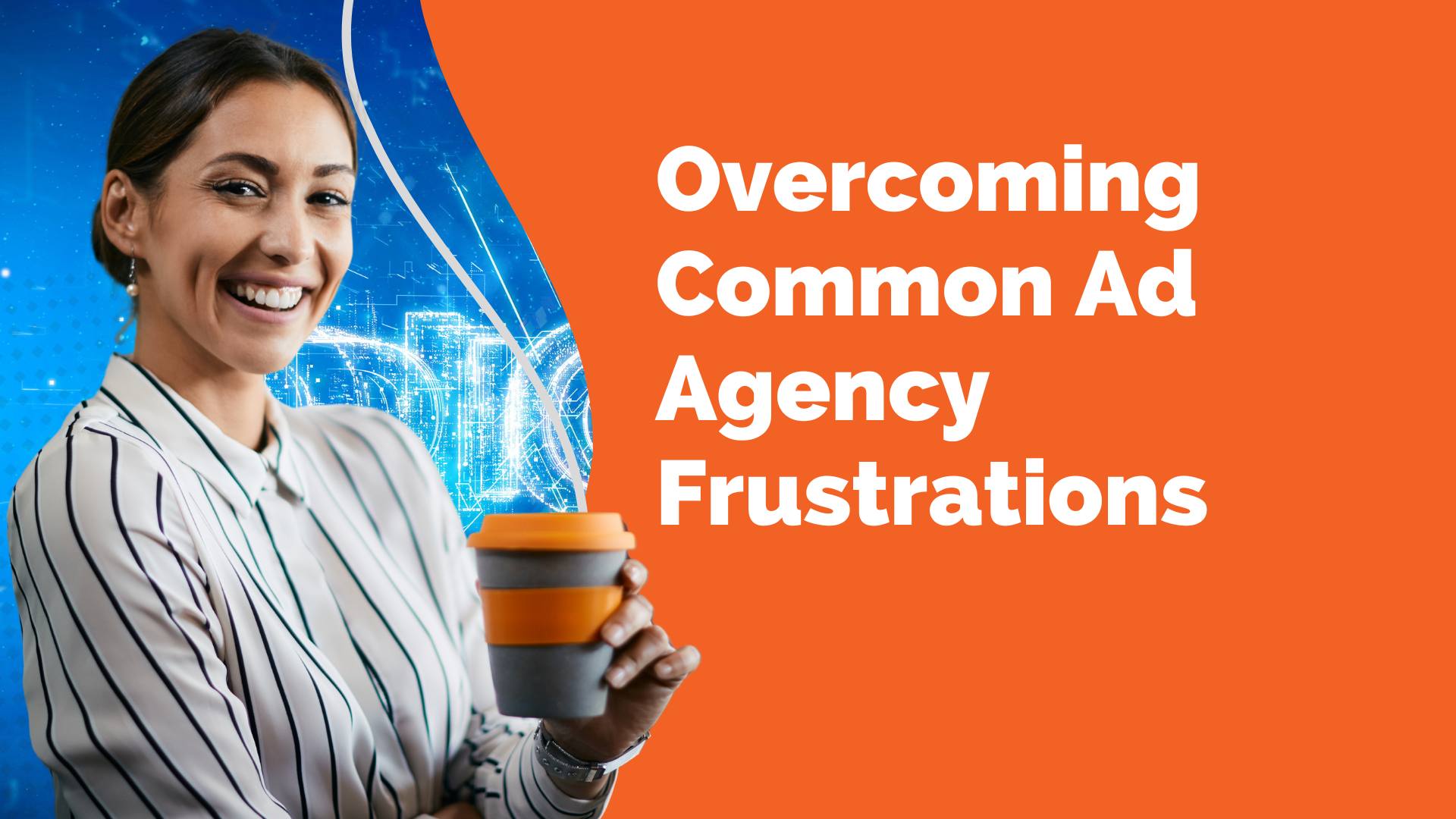About the Author
Alex is Founder & Strategic Advisor at UnitedAds, a leading digital marketing agency specializing in PPC Management.
With nearly two decades of industry experience, he has become a recognized authority in creating high-impact Google Ads campaigns that drive business growth.
Under his leadership, UnitedAds has built a strong reputation for delivering data-driven strategies that maximize ad performance and improve online visibility. Alex’s expertise lies in leveraging the full potential of PPC to help businesses scale efficiently and achieve sustainable success in the competitive digital marketing landscape.
Pay-Per-Click (PPC) advertising has emerged as a powerful tool for law firms to increase their online visibility and reach potential clients who are actively searching for legal services.
By investing in PPC, law firms can gain immediate exposure on search engines, outperform competitors, and efficiently generate leads.
Why PPC Matters for Law Firms
The shift from traditional to digital marketing has transformed how law firms connect with clients. With the majority of individuals using the internet to find legal assistance, having a strong online presence is crucial. Digital marketing strategies, particularly PPC, enable law firms to target specific demographics, tailor their messaging, and measure the effectiveness of their campaigns in real-time.

Overview of PPC Benefits for Law Firms
PPC advertising offers several advantages for law firms looking to expand their client base:
- Immediate Visibility: PPC ads appear at the top of search engine results pages, ensuring that your firm is seen by users searching for relevant legal services.
- Targeted Audience Reach: PPC allows for precise targeting based on keywords, location, and user behavior, connecting you with potential clients who need your services.
- Cost-Effective Lead Generation: With PPC, you only pay when a user clicks on your ad, ensuring that your marketing budget is spent on engaged prospects.
- Measurable Results: PPC platforms provide detailed analytics, allowing you to track campaign performance and optimize for better results.
Understanding the Legal Market: Special PPC Considerations
To create effective PPC campaigns for law firms, it is essential to grasp the unique challenges of the legal market. This section will guide you through the critical considerations to keep in mind when planning and executing your PPC strategy in the legal industry.
Highly Competitive Environment
Acknowledge that the legal industry is one of the most competitive sectors in online advertising. Common keywords like “personal injury lawyer” or “criminal defense attorney” are highly sought after, driving up competition. To navigate this environment:
- Conduct In-Depth Keyword Research: Identify niche or long-tail keywords that have lower competition but are still relevant to your services.
- Analyze Competitors: Understand what your competitors are bidding on and how you can differentiate your campaigns.
- Focus on Unique Selling Propositions (USPs): Highlight what sets your law firm apart to attract potential clients.
High Cost Per Click (CPC)
Prepare for higher-than-average CPCs due to the competitive nature of legal keywords. To manage your budget effectively:
- Set Clear Budget Limits: Determine a daily and monthly budget to prevent overspending.
- Optimize for Conversion: Focus on keywords and ads that drive high-quality leads, ensuring a better return on investment.
- Utilize Bid Adjustments: Adjust your bids based on factors like location, time of day, and device to maximize efficiency.
Legal Regulations and Restrictions
Ensure all your PPC campaigns comply with legal advertising regulations and platform policies. Non-compliance can result in penalties or ad disapproval. To stay within legal boundaries:
- Avoid Misleading Claims: Do not make guarantees about case outcomes or exaggerate your abilities.
- Include Necessary Disclaimers: Provide disclaimers as required by law to inform users appropriately.
- Review Platform Policies: Familiarize yourself with Google’s advertising policies for legal services to ensure your ads meet all guidelines.
Always verify that your advertising practices comply with all applicable laws and ethical standards.
Tailoring PPC Strategies for Law Firms
To maximize the effectiveness of your PPC campaigns, it’s crucial to customize your strategies specifically for the legal industry. This section will guide you through key tactics to enhance your PPC efforts.
Keyword Research and Selection
Begin by identifying the most relevant keywords for your legal services. Here’s how:
- Identify High-Intent Keywords: Focus on keywords that indicate a strong intent to hire a lawyer, such as “family law attorney near me” or “divorce lawyer consultation.”
- Use a Mix of Keyword Types: Incorporate broad match, phrase match, and exact match keywords to capture a wide range of search queries.
- Leverage Long-Tail Keywords: Target more specific phrases that may have lower search volume but higher conversion rates, like “estate planning attorney in [Your City].”
Geotargeting and Local PPC Campaigns
Since legal services are often location-specific, it’s important to focus your campaigns geographically:
- Set Up Location Targeting: Configure your campaigns to display ads in the regions where you practice law.
- Use Location-Specific Keywords: Include city or region names in your keywords to attract local clients.
- Adjust Bids by Location: Increase bids in areas where you see higher conversion rates to maximize ROI.
Ad Copywriting for Legal Services
Craft compelling ad copy that resonates with potential clients:
- Highlight Your Expertise: Emphasize your firm’s specialties and years of experience.
- Include a Strong Call to Action (CTA): Encourage users to take the next step with phrases like “Schedule a Free Consultation.”
- Avoid Legal Jargon: Use clear and accessible language to ensure your message is understood.
Ad Extensions for Law Firms
Enhance your ads with additional information using ad extensions:
- Call Extensions: Add your phone number to allow prospects to call you directly from the ad.
- Location Extensions: Display your office address to build trust and highlight your local presence.
- Sitelink Extensions: Include links to specific pages on your website, such as practice areas or attorney profiles.
By implementing these strategies, you’ll tailor your PPC campaigns to better reach and convert potential clients seeking legal assistance.
Managing Budgets and Bidding Strategies
When Sarah, a partner at a mid-sized law firm, first looked into PPC advertising, she was overwhelmed by the high costs associated with legal keywords. She knew that without a well-managed budget and smart bidding strategies, their marketing funds could deplete quickly without yielding meaningful results. Determined to make the most of their investment, she set out to master the art of budgeting and bidding in the world of legal PPC.
Setting a Realistic PPC Budget
Sarah began by analyzing the costs associated with different legal specialties. She discovered that while personal injury keywords had a high cost per click, areas like estate planning were more affordable. Armed with this knowledge, she calculated a realistic budget that balanced the firm’s goals with the financial realities of the PPC landscape.
She decided to allocate more funds to high-value cases that justified the higher advertising costs. By doing so, she ensured that the firm’s budget was used efficiently, targeting clients who were most likely to require their services. Sarah also set aside a portion of the budget for experimenting with different keywords and ad groups, allowing for adjustments based on performance.
Bidding Strategies for Law Firms
Understanding that bidding was just as crucial as budgeting, Sarah explored various bidding strategies. She weighed the benefits of manual bidding, which offered control over each keyword bid, against automated bidding options provided by platforms like Google Ads.
Opting for a hybrid approach, she used manual bidding for their most important keywords to maintain control over high-stakes areas. For the broader set of keywords, she implemented cost-per-acquisition (CPA) bidding. This automated strategy adjusted bids to help acquire new clients at a target cost, ensuring that they didn’t overspend for a lead.
Sarah also recognized the importance of tracking conversions meticulously. By setting up conversion tracking, she could see which keywords and ads led to inquiries or consultations. This data was invaluable; it allowed her to adjust bids based on actual performance rather than just click-through rates. Over time, this approach refined their campaigns, focusing spend on the most effective areas.
Through careful budgeting and strategic bidding, Sarah’s firm began to see a significant return on their PPC investment. Not only did they attract more clients, but they did so in a cost-effective manner that supported the firm’s growth without straining their resources. Sarah’s journey highlighted the power of informed decision-making in navigating the complex world of PPC advertising for law firms.
Optimizing Landing Pages for Legal PPC Campaigns
An effective landing page serves as the cornerstone of any successful PPC campaign for law firms. It is the first touchpoint where potential clients interact with your firm after clicking on an ad. The landing page must not only capture their attention but also instill confidence and encourage them to take the desired action.
Creating High-Converting Landing Pages
A high-converting landing page is meticulously tailored to reflect the ad content that led visitors there. Imagine a visitor searching for a “divorce attorney” and clicking on your ad; they should arrive on a page dedicated specifically to your divorce legal services. This relevancy reassures them that they are in the right place.
The page should have a clean and professional design, using a color scheme and imagery that aligns with your firm’s branding. Clear and concise headlines immediately convey the value you offer. The language used should be straightforward, avoiding complex legal jargon that might overwhelm or confuse the reader. Instead, focus on articulating how your services address their specific needs.
Incorporate compelling calls to action (CTAs) that stand out on the page. Buttons or links with phrases like “Schedule a Free Consultation” or “Speak with an Attorney Today” guide the visitor toward the next step. These CTAs should be prominently placed and easily accessible, reducing any friction in the conversion process.
Building Trust Through Design
Trust is paramount in the legal profession, and your landing page must reflect that. Including testimonials from satisfied clients adds a personal touch and demonstrates your firm’s success in handling cases similar to theirs. Featuring case results, where appropriate, can provide concrete examples of your expertise and track record.
Accreditations and affiliations with respected legal organizations should be visibly displayed. Badges or logos from entities like the American Bar Association or local legal societies enhance your credibility. Awards or recognitions your firm has received can further distinguish you from competitors.
Ensure that your contact information is prominently featured. A visible phone number, email address, and office location not only make it easy for potential clients to reach out but also add legitimacy to your firm. Including an intake form directly on the landing page allows visitors to provide their information conveniently, initiating the engagement process.
The overall user experience should be seamless. The page must load quickly and be optimized for both desktop and mobile devices, as many users search for legal services on their smartphones. Intuitive navigation and a logical flow of information keep visitors engaged and reduce the likelihood of them leaving the page prematurely.
By thoughtfully crafting your landing pages with these elements, you create an inviting and trustworthy environment that encourages potential clients to take action. This careful attention to detail can significantly improve your conversion rates and the overall success of your PPC campaigns.
Special Considerations for Different Legal Practices
Each area of legal practice presents unique challenges and opportunities when it comes to PPC advertising. Understanding these nuances is crucial for law firms aiming to connect effectively with their target audiences. This section describes how different legal specialties require tailored PPC strategies to maximize engagement and conversion.
Personal Injury Law
Personal injury law is highly competitive, with keywords like “car accident lawyer” and “medical malpractice attorney” commanding some of the highest costs per click. Campaigns in this field benefit from a focused approach. Ads should highlight specific types of personal injury cases, such as workplace accidents, slip and falls, or product liability. Emphasizing the firm’s track record of securing substantial settlements or verdicts can instill confidence in potential clients. Including client testimonials and case results in the ad copy or on landing pages enhances credibility. It’s also effective to use compassionate language that acknowledges the physical and emotional toll on clients.
Family Law
Family law deals with sensitive and often emotional matters like divorce, child custody, and adoption. PPC campaigns in this area should be crafted with empathy and discretion. Advertisements might focus on the firm’s ability to provide supportive guidance during difficult times. Keywords such as “trusted family attorney” or “compassionate divorce lawyer” resonate with individuals seeking both legal expertise and personal understanding. The ad copy should avoid aggressive language, instead offering reassurance and highlighting the firm’s commitment to protecting clients’ best interests. Landing pages can offer helpful resources, such as articles on coping with family changes or checklists for divorce proceedings.
Criminal Defense
In criminal defense, clients often require immediate assistance due to the urgent nature of legal charges. PPC campaigns should emphasize availability and prompt action. Ads might include phrases like “24/7 Legal Support” or “Immediate Assistance for Legal Emergencies.” Using call extensions is particularly effective, allowing potential clients to quickly connect by phone. Keywords should be specific to the types of cases handled, such as “DUI defense attorney” or “assault charge lawyer,” to attract individuals seeking expertise in particular areas of criminal law. The tone should convey confidence and a strong defense strategy, assuring clients of vigorous representation.
Estate Planning and Business Law
Estate planning and business law typically involve clients who are proactively seeking to organize their affairs or navigate complex legal requirements. PPC campaigns should focus on the firm’s expertise and the value of thorough planning. Keywords like “estate planning attorney,” “will and trust lawyer,” or “corporate law firm” are effective in reaching this audience. Ads can highlight services such as personalized estate plans, asset protection, or business formation guidance. Educational content, such as free consultations or informative guides, can be offered to demonstrate the firm’s knowledge and build trust. The language should be professional and reassuring, emphasizing precision and attention to detail.
By tailoring PPC strategies to the specific characteristics of each legal practice area, law firms can more effectively engage with potential clients. Understanding the client’s mindset and legal needs allows for the creation of ads that are not only relevant but also compelling, increasing the likelihood of conversion and successful client relationships.
Tracking and Analyzing Performance
For law firms investing in PPC campaigns, tracking and analyzing performance is essential to maximize return on investment. By monitoring key metrics and making data-driven decisions, you can continuously refine your campaigns to achieve better results.
Key Metrics for Legal PPC Campaigns
Understanding and focusing on the right metrics will help you assess the effectiveness of your PPC efforts. Important performance indicators include:
- Click-Through Rate (CTR): Measures the percentage of users who click on your ad after seeing it. A higher CTR indicates that your ad is relevant and appealing to your target audience.
- Cost Per Lead (CPL): Calculates how much you’re spending to acquire a single lead. Keeping CPL low while maintaining lead quality is crucial for cost-effective campaigns.
- Conversion Rate: The percentage of users who take a desired action (e.g., filling out a contact form) after clicking your ad. A higher conversion rate signifies that your landing page and offer are compelling.
- Cost Per Acquisition (CPA): Represents the cost of acquiring a new client. Monitoring CPA helps ensure that your marketing spend aligns with the revenue generated from new clients.
Call Tracking for Law Firms
For many law firms, phone calls are a primary source of leads. Implementing call tracking is essential to capture this valuable data:
- Track Phone Conversions: Use call tracking software to record when calls are made as a result of your PPC ads. This provides a more complete picture of your campaign performance.
- Assess Lead Quality: Analyze call recordings (where legal and appropriate) to evaluate the quality of leads and adjust your targeting or messaging accordingly.
- Integrate with Analytics: Incorporate call data into your overall analytics to measure the true impact of your PPC efforts.
A/B Testing for Continuous Optimization
Regularly testing different elements of your PPC campaigns can lead to significant improvements over time:
- Test Ad Copy: Experiment with different headlines, descriptions, and calls to action to see what resonates most with your audience.
- Optimize Landing Pages: Try variations in design, content, and form fields on your landing pages to increase conversion rates.
- Adjust Bidding Strategies: Compare manual and automated bidding, or test different bid amounts, to find the most cost-effective approach.
By analyzing the results of these tests, you can make informed decisions to enhance your campaigns continually.
Common Pitfalls in Legal PPC Campaigns
While PPC advertising offers significant opportunities for law firms, there are common mistakes that can hinder the success of your campaigns. Being aware of these pitfalls can help you optimize your efforts and ensure a better return on investment.
Neglecting Negative Keywords
One of the most frequent errors is overlooking the use of negative keywords. Without them, your ads may appear for irrelevant searches, leading to wasted clicks and higher costs.
- Irrelevant Traffic: For instance, if you don’t exclude terms like “free” or “pro bono,” you might attract visitors looking for services you don’t offer.
- Action Step: Regularly update your negative keyword list by reviewing search query reports to filter out unwanted traffic.
Ignoring Mobile Optimization
With a growing number of users searching for legal services on mobile devices, failing to optimize for mobile can significantly reduce your campaign’s effectiveness.
- Poor User Experience: Non-mobile-friendly ads and landing pages can lead to high bounce rates.
- Action Step: Ensure your ads and landing pages are responsive and load quickly on mobile devices.
Failure to Track Conversions
Without proper conversion tracking, it’s impossible to measure the true success of your campaigns or understand which elements are working.
- Lack of Data: Not knowing which keywords or ads are driving leads hampers optimization efforts.
- Action Step: Set up conversion tracking for actions like form submissions, calls, and chat engagements to gather valuable data.
Overlooking Quality Score
Quality Score impacts your ad rankings and cost per click. Ignoring it can lead to higher expenses and lower ad visibility.
- Poor Ad Performance: Low-quality scores can result from irrelevant keywords, ad copy, or landing pages.
- Action Step: Improve ad relevance and landing page experience to boost your Quality Score.
Insufficient Budget Allocation
Underestimating the necessary budget can limit your campaign’s reach, especially in the competitive legal industry where keyword costs are high.
- Limited Visibility: A low budget may exhaust quickly, causing your ads to stop showing early in the day.
- Action Step: Allocate a realistic budget based on keyword research and adjust as needed based on performance.
Setting and Forgetting Campaigns
PPC campaigns require ongoing management. Simply setting up a campaign without regular monitoring can lead to suboptimal results.
- Missed Opportunities: Without adjustments, you may miss out on improving performance or catching errors.
- Action Step: Schedule regular reviews to analyze data, adjust bids, and update keywords and ads.
Not Utilizing Ad Extensions
Ad extensions provide additional information and can improve click-through rates. Ignoring them is a missed opportunity to enhance your ads.
- Less Informative Ads: Without extensions, users receive less information about your services upfront.
- Action Step: Implement relevant ad extensions like call, location, and sitelink extensions to provide more value.
Failing to Align Ads with Landing Pages
Inconsistency between your ads and landing pages can confuse users and lower conversion rates.
- User Frustration: If visitors don’t find what was promised in the ad, they’re likely to leave your site.
- Action Step: Ensure that your landing pages directly reflect the messaging and offers presented in your ads.
By recognizing and addressing these common pitfalls, you can improve the effectiveness of your legal PPC campaigns. Continuous monitoring and optimization are key to staying ahead in the competitive legal advertising landscape.
Conclusion: The Future of PPC for Law Firms
As the digital landscape continues to evolve, PPC advertising remains a vital tool for law firms seeking to reach new clients and stay competitive. The future of PPC for legal services is shaped by emerging trends, the synergy between SEO and PPC, and the necessity for ongoing management and optimization.
Evolving PPC Trends
Advancements in technology are continually reshaping PPC strategies. Artificial intelligence and machine learning are playing increasingly significant roles in optimizing ad campaigns. AI-powered platforms can analyze vast amounts of data to predict user behavior, allowing for more precise targeting and bid adjustments.
Automation tools are also becoming more sophisticated, handling tasks such as keyword management, ad creation, and performance analysis. For law firms, leveraging these technologies can lead to more efficient campaigns, reduced costs, and improved ROI. Staying abreast of these trends ensures that your firm remains at the forefront of digital marketing innovation.
The Role of SEO and PPC Together
Combining SEO (Search Engine Optimization) and PPC strategies can amplify your firm’s online visibility. While PPC provides immediate results by placing your ads at the top of search engine results pages, SEO focuses on improving your website’s organic rankings over time.
An integrated approach allows you to dominate both paid and organic search results, increasing brand awareness and credibility. Insights gained from PPC campaigns, such as high-performing keywords and user behavior data, can inform your SEO strategy. Conversely, SEO analytics can help refine your PPC efforts. This synergy ensures a comprehensive online presence that maximizes reach and engagement.
Why Law Firms Need Ongoing PPC Management
The legal industry’s competitive nature demands continuous attention to PPC campaigns. Market conditions, keyword costs, and user behavior can change rapidly, requiring regular adjustments to maintain effectiveness.
Ongoing management involves monitoring performance metrics, testing new strategies, and staying updated on platform changes and policy updates. Engaging PPC specialists or dedicating in-house resources to manage campaigns ensures that your firm can adapt to challenges such as rising CPCs and increased competition.
Moreover, as client expectations evolve, your messaging and targeting must reflect current needs and preferences. Continuous optimization not only improves campaign performance but also enhances the overall client acquisition process.
In conclusion, the future of PPC for law firms is dynamic and full of potential. By embracing emerging technologies, integrating SEO and PPC strategies, and committing to ongoing management, your firm can effectively navigate the digital marketing landscape. This proactive approach positions your law firm for sustained growth and success in an increasingly competitive industry.
Why Invest in PPC for Your Law Firm
PPC campaigns offer a strategic avenue to reach potential clients precisely when they are searching for legal services. By implementing the strategies outlined in this guide, your firm can stand out in a crowded market, attract high-quality leads, and achieve a strong return on investment.
Don’t let your firm lag behind in the competitive legal landscape. Now is the time to take action:
- Assess Your Current Marketing Efforts: Evaluate how PPC can complement and enhance your existing strategies.
- Partner with PPC Specialists: Consider collaborating with experienced professionals who understand the nuances of legal advertising.
- Implement Best Practices: Apply the insights and techniques discussed in this guide to optimize your campaigns.
- Commit to Continuous Improvement: Stay proactive in monitoring, testing, and refining your PPC efforts for sustained success.
Your potential clients are searching for legal assistance online right now. Make sure your firm is visible and accessible to them. By investing in PPC advertising, you’re not only expanding your reach but also positioning your firm as a leader in the legal industry.
Take the first step today. Elevate your firm’s digital marketing strategy with PPC and watch your client base grow.







